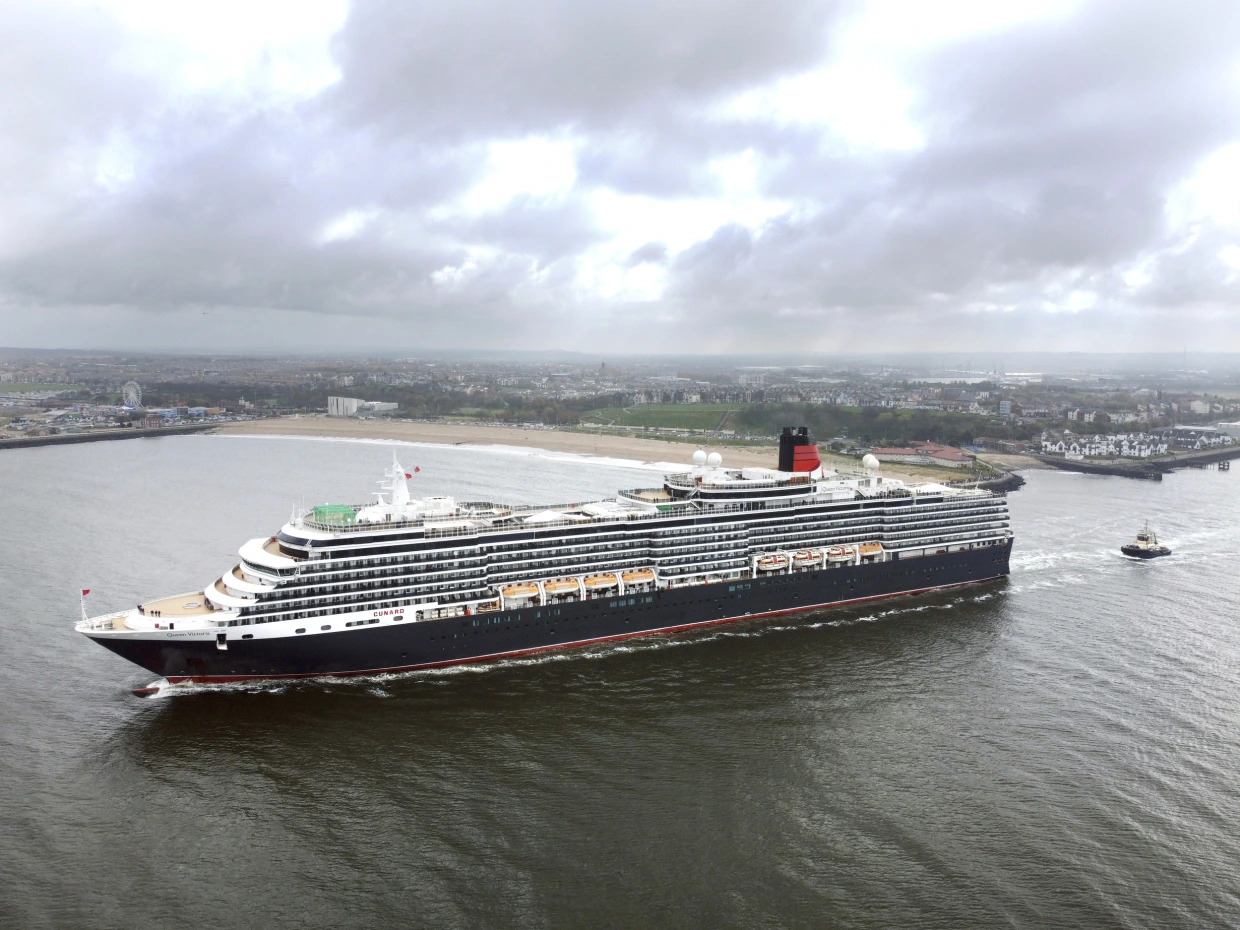On January 22, the Cunard Queen Victoria cruise ship docked in Fort Lauderdale, Florida, became the epicenter of a concerning health situation as approximately 140 people fell sick with a gastrointestinal illness. The U.S. Centers for Disease Control and Prevention (CDC) started monitoring the outbreak, reporting that 123 passengers and 16 crew members had fallen ill during a three-week leg of the voyage. With 1,800 passengers and 960 crew members on board in total, the cause of the outbreak remains unknown, with symptoms primarily including diarrhea and vomiting.
The Cruise Itinerary and Response
The Queen Victoria, on a 107-night world voyage, was scheduled to stop in San Francisco on Feb. 6 and Honolulu on Feb. 12 before sailing to countries in Oceania, according to the Cunard website. However, the recent outbreak has raised concerns about the health and safety of both passengers and crew members. In response to the situation, the Queen Victoria crew has reportedly implemented “increased cleaning and disinfection procedures” while isolating ill passengers and crew.
Cunard Cruise Line issued a statement to NBC News, acknowledging the reports of a small number of guests experiencing symptoms of gastrointestinal illness on board. The cruise line asserted that they immediately activated enhanced health and safety protocols to ensure the well-being of all individuals on board and emphasized the effectiveness of the measures taken.
CDC Involvement and Monitoring
The CDC’s Vessel Sanitation Program has been actively monitoring the situation, remotely assessing the ship’s outbreak response and sanitation procedures. As of the latest update, the cause of the outbreak remains unknown, and the CDC continues to work towards identifying the source of the illness. With the predominant symptoms being diarrhea and vomiting, the nature of the illness raises concerns about the potential for further spread among passengers and crew.
READ MORE: The Trump factor is looming over China’s markets
Medical staff on cruise ships under U.S. jurisdiction are required to report cases of gastrointestinal illness to the Vessel Sanitation Program when at least two percent of people onboard are infected. This reporting requirement is crucial for early detection and containment of outbreaks, enabling swift and effective responses to mitigate the impact on public health.
Enhanced Health and Safety Protocols
In light of the outbreak, the implementation of enhanced health and safety protocols by Cunard Cruise Line showcases the industry’s commitment to ensuring the well-being of passengers and crew members. These protocols likely include stringent cleaning measures, increased disinfection of common areas, and the isolation of individuals displaying symptoms to prevent the further spread of the illness.
The effectiveness of these measures, as highlighted by Cunard, is essential in regaining the confidence of travelers in cruise ship vacations. The cruise industry has faced numerous challenges in recent years, including the impact of the COVID-19 pandemic, and any health-related incidents on board further contribute to the scrutiny and concerns of potential passengers.
The Unknown Cause and Ongoing Investigation
One of the critical aspects of managing an outbreak is identifying its source, and in this case, the cause of the gastrointestinal illness on the Queen Victoria remains unknown. The CDC’s ongoing investigation aims to determine the origin of the outbreak, whether it is a result of contaminated food, water, or other environmental factors on the cruise ship.
The challenge in identifying the source lies in the dynamic and confined environment of a cruise ship. Close quarters, shared facilities, and communal spaces create an environment conducive to the rapid spread of infectious diseases. The CDC’s involvement in the investigation is crucial in establishing preventive measures to avoid future outbreaks on cruise ships.
Concerns for the Ongoing World Voyage
As the Queen Victoria continues its world voyage, scheduled to stop in various ports and countries, there are legitimate concerns about the potential spread of the gastrointestinal illness to new locations. The cruise industry operates on a global scale, making it essential for cruise lines and health authorities to collaborate and share information to prevent the further spread of the illness.
Passengers and crew members on the Queen Victoria, as well as those in upcoming ports of call, will undoubtedly be closely monitored for any signs of illness. The cruise industry’s ability to effectively manage and contain the outbreak will be critical not only for the well-being of those directly affected but also for the reputation of the cruise line and the industry as a whole.
The Broader Impact on the Cruise Industry
Gastrointestinal outbreaks on cruise ships have historically garnered significant media attention, leading to negative perceptions of cruise vacations. The current situation on the Queen Victoria adds to the challenges faced by the cruise industry, which has been working tirelessly to recover from the setbacks caused by the COVID-19 pandemic.
Public perception and trust play a pivotal role in the cruise industry’s recovery, and any health-related incidents, such as the current outbreak on the Queen Victoria, can contribute to hesitancy among potential passengers. The industry will need to reassure travelers about the effectiveness of their health and safety protocols, emphasizing their commitment to providing a secure and enjoyable experience.
The recent gastrointestinal outbreak on the Cunard Queen Victoria cruise ship has raised concerns about the health and safety of passengers and crew members. With the CDC actively monitoring the situation and the cruise line implementing enhanced health and safety protocols, efforts are underway to contain the outbreak and identify its source.
The ongoing world voyage of the Queen Victoria adds complexity to the situation, with concerns about the potential spread of the illness to new locations. The cruise industry’s ability to effectively manage the outbreak and communicate transparently with the public will play a crucial role in mitigating the impact on its reputation.
As the investigation continues, the cruise industry faces yet another challenge in maintaining public trust and confidence. The lessons learned from this incident will likely contribute to further improvements in health and safety protocols, emphasizing the industry’s commitment to providing a secure and enjoyable travel experience for passengers worldwide.

